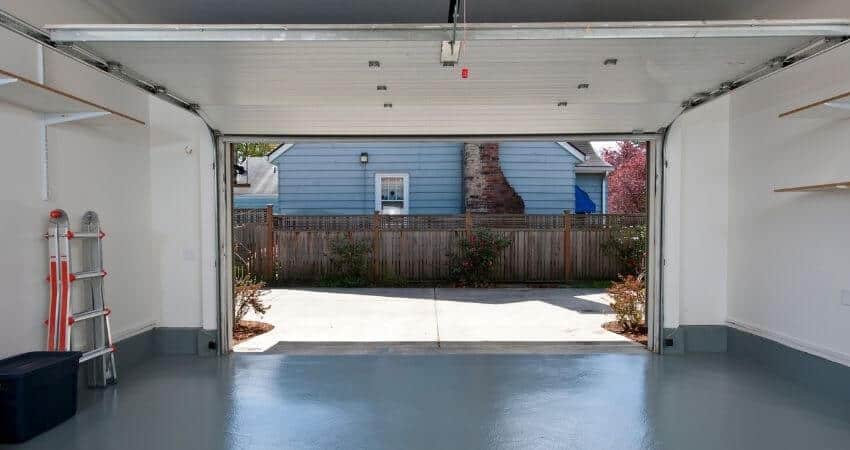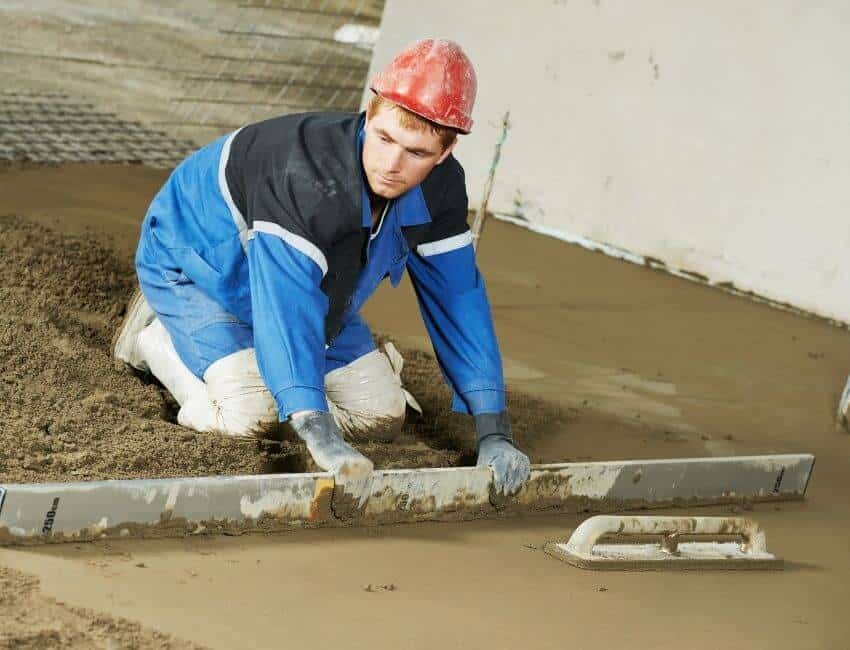Importance of Garage Floor Thickness in Concrete
The garage floor is an essential component of any residential or commercial building. It acts as a foundation for vehicles and provides support for heavy loads. One crucial aspect to consider when constructing a garage floor is its thickness. The thickness of the garage floor plays a vital role in determining its durability, strength, and ability to withstand various factors. Let’s explore the importance of garage floor thickness in concrete and how it affects the overall performance and longevity of the structure.
- Enhanced Load-Bearing Capacity: A thicker garage floor offers increased load-bearing capacity, allowing it to withstand heavy vehicles and equipment. The weight of vehicles, tools, and other items stored in the garage can exert significant pressure on the floor. By opting for a thicker concrete floor, you can ensure that it can support the weight without cracking or deteriorating over time.
- Resistance to Cracks and Settlement: Garage floors are susceptible to cracks and settlement due to various factors such as temperature changes, moisture, and soil conditions. A thicker concrete floor provides better resistance against these issues. The additional thickness helps distribute the load more evenly, reducing the chances of cracks and settlement. This ensures a more stable and durable garage floor that will require fewer repairs and maintenance.
- Durability and Longevity: A thicker garage floor is inherently more durable and long-lasting compared to a thinner one. The additional thickness adds strength and resilience to the concrete, making it less prone to wear and tear. It can withstand heavy traffic, impacts, and other factors that could potentially damage a thinner floor. Investing in a thicker garage floor ensures that it will remain in excellent condition for years to come, saving you money on repairs or replacements.
- Insulation and Moisture Protection: Garage floors can be exposed to moisture, especially in areas where rainfall or snow is prevalent. A thicker floor provides better insulation and moisture protection. It acts as a barrier, preventing water from seeping into the underlying layers and causing damage. Additionally, the added thickness helps regulate temperature, making the garage more comfortable and reducing the risk of condensation and mold growth.

Factors to Consider When Determining Garage Floor Thickness
Determining the appropriate thickness for a garage floor is crucial to ensure its structural integrity and longevity. Several factors need to be considered to determine the optimal garage floor thickness. Below are the key factors to consider when making this decision, to help you make an informed choice for your garage construction or renovation project.
- Type of Vehicles and Equipment: The type of vehicles and equipment that will be parked or stored in the garage plays a significant role in determining the required floor thickness. Heavier vehicles, such as trucks or SUVs, will exert more pressure on the floor compared to smaller cars. Additionally, if you plan to store heavy machinery or equipment in the garage, the floor should be thicker to accommodate the added load.
- Soil Conditions and Climate: The soil conditions and climate of the area where the garage is located can impact the required floor thickness. If the soil has poor load-bearing capacity, a thicker floor may be necessary to distribute the weight more effectively. Similarly, extreme weather conditions, such as freezing temperatures or high humidity, can affect the stability of the floor. In such cases, opting for a thicker floor can provide better protection against potential damage.
- Intended Use of the Garage: The intended use of the garage is another crucial factor to consider when determining floor thickness. If the garage will be used for storage purposes only, a thinner floor may be sufficient. However, if you plan to use the garage as a workshop or for heavy-duty activities, a thicker floor is recommended to withstand the increased load and potential impacts.
- Budget and Construction Constraints: Budgetary constraints and construction limitations may influence the choice of garage floor thickness. Thicker floors require more materials and labor, increasing the overall cost of construction. It is essential to strike a balance between the desired thickness and the available budget. Additionally, existing structural limitations or space constraints may impact the maximum thickness that can be accommodated in the garage design.
Benefits of Optimal Garage Floor Thickness in Concrete
Enhanced Durability: Optimal garage floor thickness in concrete increases the overall strength and durability of the flooring. With a thicker concrete floor, it can withstand heavy loads and resist wear and tear caused by vehicles, machinery, and regular foot traffic. This ensures that the garage floor remains intact and functional for a longer period of time.
Improved Load-Bearing Capacity: The optimal thickness of a garage floor in concrete allows it to bear heavier loads without cracking or breaking. This is particularly beneficial for homeowners or businesses that require a garage floor capable of supporting heavy equipment or vehicles. A thicker concrete floor can effectively distribute the weight and prevent any structural damage or failure.
Enhanced Resistance to Cracks: Concrete garage floors with optimal thickness exhibit improved resistance to cracking. Thicker concrete layers are less prone to shrinkage cracks, as they have a greater ability to accommodate any contraction or expansion caused by temperature fluctuations. This reduces the likelihood of water seepage and moisture-related issues, ultimately increasing the longevity of the garage floor.
Enhanced Insulation: Thick concrete garage floors provide better insulation compared to thinner ones. The increased thickness helps in regulating the temperature inside the garage, making it more comfortable and energy-efficient. This is especially advantageous in regions with extreme weather conditions, as it can help to maintain a more stable temperature and reduce the need for additional heating or cooling.
Reduced Maintenance: Optimal garage floor thickness in concrete minimizes the need for frequent repairs and maintenance. Thicker floors are less susceptible to damage from impacts or heavy use, reducing the likelihood of cracks, dents, and other forms of wear. This not only saves time and effort but also reduces the overall maintenance costs associated with the garage floor.
Enhanced Resale Value: Investing in an optimal garage floor thickness in concrete can significantly enhance the resale value of a property. Potential buyers are more likely to be attracted to a garage with a durable and well-maintained floor. A thicker concrete floor indicates quality construction and attention to detail, which can positively impact the overall value of the property.
Versatility in Design Options: Thicker concrete garage floors offer greater flexibility in terms of design options. They can easily accommodate various decorative finishes, such as epoxy coatings, stains, or stamped patterns, without compromising the structural integrity of the floor. This allows homeowners to personalize their garage floors and create a visually appealing space.
Tips for Achieving the Right Garage Floor Thickness in Concrete
Determine the Purpose of the Garage:
Before deciding on the thickness of your garage floor, it is essential to consider the purpose of the garage. If you plan to use it solely for parking vehicles, a standard thickness of around 4 inches will suffice. However, if you intend to use your garage for heavy-duty purposes such as storing heavy equipment or creating a workshop, you may need a thicker concrete floor to withstand the added weight and potential impact.
Assess the Soil Conditions:
The soil conditions of your garage site play a crucial role in determining the appropriate thickness of the concrete floor. If the soil is stable and has good load-bearing capacity, a standard thickness should be sufficient. However, if the soil is weak or prone to settling, it is recommended to increase the thickness of the floor to prevent cracking or sinking over time.
Consider the Weight of Vehicles and Equipment:
The weight of vehicles and equipment that will be stored in the garage is another crucial factor to consider when determining the right floor thickness. Heavier vehicles or equipment will exert more pressure on the concrete floor, requiring a thicker slab to ensure its durability and longevity. Consult with a structural engineer or contractor to calculate the load capacity and determine the appropriate thickness accordingly.
Reinforce with Steel Reinforcement:
To enhance the strength and resistance of your garage floor, consider reinforcing the concrete with steel bars or mesh. Steel reinforcement provides additional support and helps to distribute the load more evenly, reducing the risk of cracking or structural damage. The size and spacing of the reinforcement will depend on factors such as the expected load and the thickness of the concrete.
Hire Professional Contractors:
Achieving the right garage floor thickness in concrete requires expertise and precision. It is recommended to hire professional contractors with experience in concrete construction to ensure the job is done correctly. They will have the necessary knowledge, tools, and techniques to determine the appropriate thickness and carry out the installation accurately.
Allow Sufficient Curing Time:
After the concrete floor is poured, it is crucial to allow sufficient curing time before subjecting it to heavy loads or vehicular traffic. Curing allows the concrete to strengthen and develop its full load-bearing capacity. Follow the recommendations of the concrete manufacturer or consult with your contractor to determine the ideal curing time for your specific garage floor thickness.
Image result for floor slab thickness Pouring concrete slab
Epoxy Floor Thickness – What does that mean? – Epoxy Central
Minimum u0026 standard concrete slab thickness for garage/workshop
How Thick Should Concrete Be For A Garage Floor?
How Thick of a Concrete Slab Do I Need?
The Concrete Thickness for a Garage: 8 Things to Consider
Better Garage Floors Concrete Construction Magazine
Related Posts:









